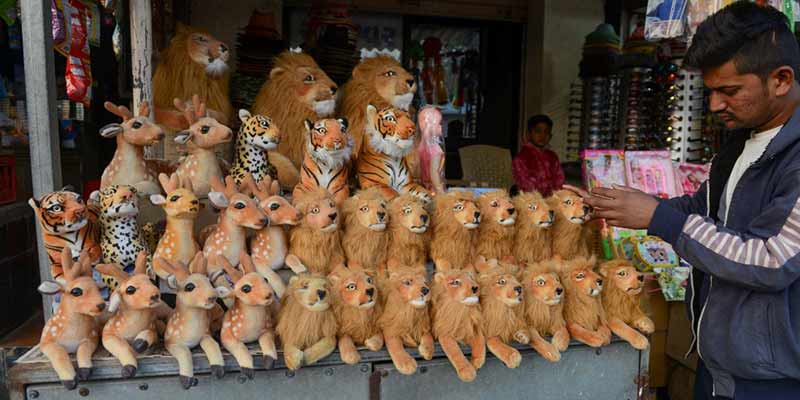- India
- Jan 18
Toy exports from India rise by 239% over last 9 years
• Exports of toys from India increased by 239 per cent in 2022-23 from 2014-15, while imports declined 52 per cent during the same period.
• A report published by the Indian Institute of Management (IIM) Lucknow at the behest of Department for Promotion of Industry and Internal Trade (DPIIT), states that the efforts of the government have enabled in creation of a more conducive manufacturing ecosystem for the Indian toy industry.
• It highlighted that these dedicated efforts have led to the doubling of the number of manufacturing units, reduction in dependence on imported inputs, increase in gross sales value by a CAGR of 10 per cent, and overall rise in labour productivity.
• India is also emerging as a top exporting nation due to the country’s integration into the global toy value chain, along with zero-duty market access for domestically manufactured toys in countries including UAE and Australia.
• In order to position India as a viable alternative to current toy hubs of the world — China and Vietnam, consistent collaborative efforts of the toy industry and the government are essential for advancements in technology, embracing e-commerce, encouraging partnerships and exports, investing in brand-building, engaging with educators and parents to communicate with children, valuing cultural diversity and collaborating with regional artisans, etc.
Govt initiatives to promote toy industry
• In his ‘Mann Ki Baat’ address in August 2020, Prime Minister Narendra Modi expressed his desire to establish India as a global toy manufacturing hub.
• To fulfil the vision, the government has undertaken a series of initiatives to promote and develop indigenous toy industry.
• The policy initiatives of the government together with the endeavours of the domestic manufacturers have resulted in remarkable growth of the Indian toy industry.
Some of these initiatives are:
i) Formulation of National Action Plan for Toys (NPAT) having 21 specific action points, and implemented by 14 central ministries/departments, with the DPIIT as the coordinating body. NPAT has been formulated by the government to promote designing of toys based on Indian values, culture and history, using toys as a learning resource, organising hackathons, and grand challenges for toys designing and manufacturing, monitoring quality of toys, restricting imports of sub-standard and unsafe toys, promoting indigenous toy cluster, boost local manufacturing and incentivise toy manufacturers, etc.
ii) Basic Customs Duty on toys (HS code 9503) was increased from 20 per cent to 60 per cent in February 2020, and subsequently to 70 per cent in March 2023.
iii) Directorate General of Foreign Trade (DGFT) has mandated sample testing of each import consignment to curb the import of sub-standards toys.
iv) A Quality Control Order (QCO) for toys was issued in 2020.
v) Special provisions were notified by BIS in December 2020 to grant licences to micro sale units manufacturing toys without a testing facility for one year and without establishing in-house testing facility, which was further extended by three years.
vi) BIS has granted more than 1,200 licences to domestic manufacturers and more than 30 licences to foreign manufacturers for manufacture of toys with BIS standard marks.
vii) Cluster-based approach adopted to support domestic toy industry. The ministry of MSME is supporting 19 toy clusters under the Scheme of Funds for the Regeneration of Traditional Industries (SFURTI), and the ministry of textiles is providing designing and tooling support to 13 toy clusters.
viii) Several promotional initiatives have also been undertaken to promote indigenous toys and encourage innovation, including the Indian Toy Fair 2021, Toycathon, etc.
ix) The ministry of MSME is conducting various skilled development programmes for aspiring and existing entrepreneurs in accordance with the demands of industry to fill the gap of skilled workforce in the MSME sector including the toy industry.
Manorama Yearbook app is now available on Google Play Store and iOS App Store

